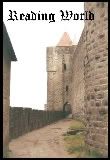It’s hard to imagine more complete, complex, gorgeous tragedy than what Homer accomplished with the Iliad and the Odyssey. With such an extraordinary depth to their scenes and themes, it’s no wonder these epics have been mined for nuggets time and again. Each character in the tale—experiencing the events differently but within a framework that readers will recognize—is a gold mine of possibility.
One latest take on the story, Laurel Corona’s Penelope’s Daughter, is a worthy addition to the genre. Corona examines the myth from the standpoint of those Odysseus left behind in Ithaca when he reluctantly went off to Troy. But rather than telling the story through the eyes of the steadfast and wily Penelope, Odysseus’s wife, the author invents a new point-of-view character, Xanthe, their daughter.
Because she was born after the hero has sailed to Troy, Odysseus is unaware his daughter even exists. Xanthe grows up in a court in a state of suspended animation, waiting for her father’s return. Her youth is spent primarily learning to weave, despairing of her brother, Telemachus, who seems destined to fall short of everyone’s hopes, and doing her best to please her mother. Penelope has too many troubles; Xanthe wants her mother to pay more attention to her, but doesn’t want to be another burden. When the long-awaited news comes that the war is over, everyone expects Odysseus to come home. He does not, and things take a turn for the worse. Suitors not only contend for Penelope’s hand in order to inherit Ithaca’s throne, but spin plots around Telemachus and Xanthe. For her own safety, Xanthe is sent to live with Helen-no-longer-of-Troy. There she matures to young womanhood. However, she cannot hide from her destiny forever. Eventually, her brother fetches her home where her future is to be decided alongside that of her family’s, as soon as (or if ever) Odysseus returns...
This is a beautifully written story, ripe with skillful imagery, that captures the essence of the epic in an original way. It is rich in the details of every day life. The female characters are strong and sympathetic. And I very much enjoyed viewing Helen and Penelope from this new perspective.
Monday, November 1, 2010
Subscribe to:
Post Comments (Atom)













No comments:
Post a Comment